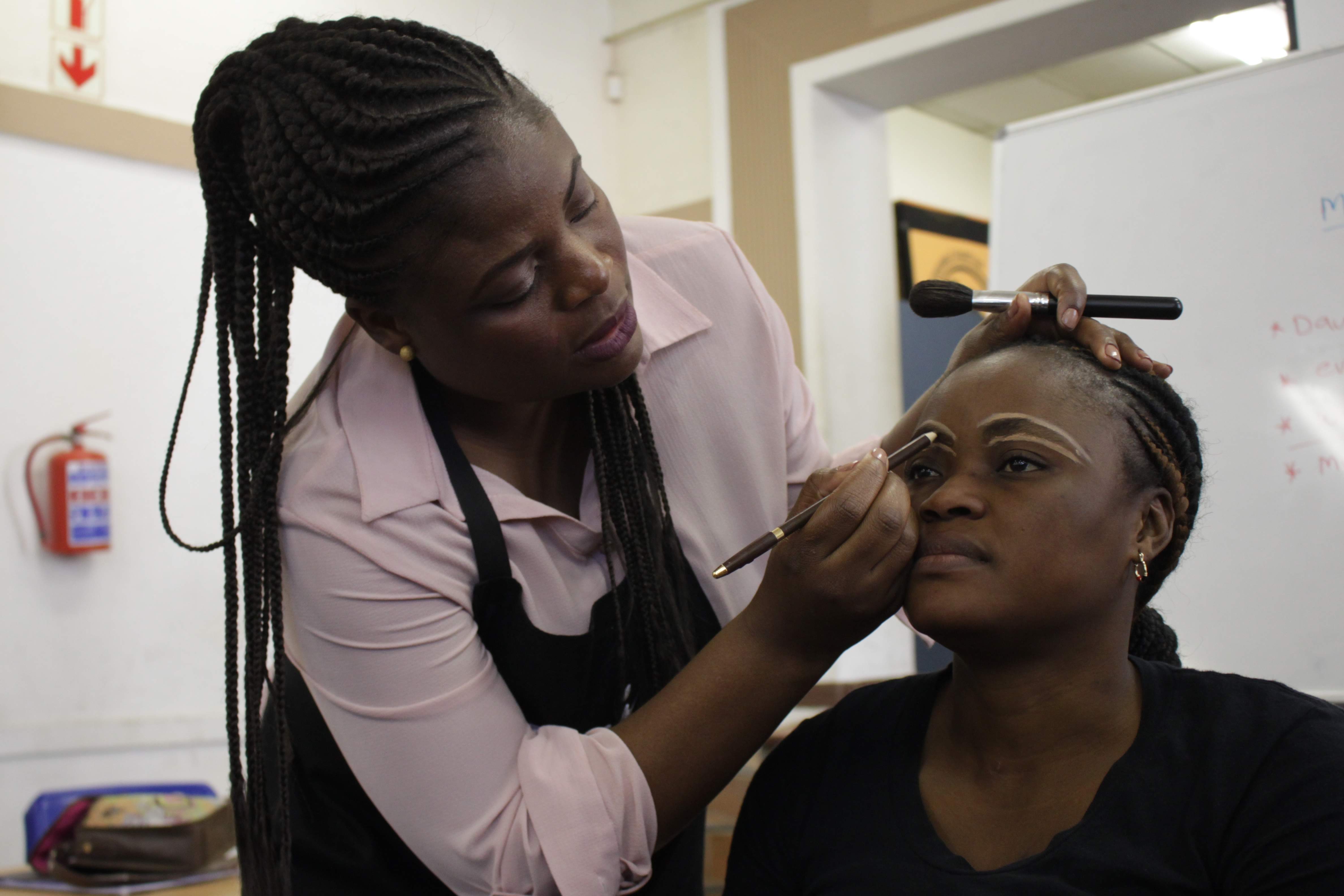
Researching the Women’s Platform
Having worked on and off with the Women’s Platform since its start in 2014, Dr. Leah Mundell returned to Cape Town again in June 2019 to learn more about the program’s successes and places where it could be improved. Dr. Mundell spoke with a total of 47 women who had participated in the Women’s Platform about their experiences through a series of focus group interviews conducted in SIHMA’s library. Through these discussions, she explored ways that and the extent to which the project has empowered participating women as they adjust to life in South Africa after having left their homelands.
Dr. Mundell, a professor of anthropology, spends most of her time teaching at Northern Arizona University in the United States and researching migrants in her own region. However, she is engaged in a cross-cultural comparison of migrants in South Africa and in the United States to better understand the phenomenon of human migration, and she has paid particular attention to the ways that community engagement shapes their experiences. In 2016, Dr. Mundell published her first set of findings on the Women’s Platform in SIHMA’s journal which included an examination of the program’s initial successes, cross-national characteristics, and leadership-promoting design.
This time, the focus of each discussion group was still on members’ experiences with the Women’s Platform but also prompted respondents to indicate their desires for mentoring, possible improvements that could be made, and the impact of the personal development classes. Dr. Mundell was moved by the way that personal development resonated so deeply with all of the participants, observing that their faces each lit up when talking about the many positive changes they saw in themselves. This included newfound confidence, empowerment, and greater comfort in communicating with people of different backgrounds in different scenarios. Each participant praised the topics discussed in the month-long training session which helped equip them with better skills for the professional world which inevitably carried through to their personal lives.
Another aspect of the Women’s Platform that Dr. Mundell was interested in studying more was the way that it brings together women from all across Africa. While other similar projects are designed for only women from the same country, the Women’s Platform is a multi-ethnic experience that features women from countries like the Democratic Republic of Congo and Zimbabwe. South African women are also eligible to participate in the Women’s Platform. Because of the tensions between native South Africans and foreigners, Dr. Mundell asked each woman about their experience with the ethnic identities of the other women in their personal development and sector training groups to better understand the interactions that took place. Linguistic barriers and the occasional argument were present, but the interviewees all spoke to the deep value of having been exposed to women of other backgrounds.
When asked about possible changes that the Women’s Platform could make, the respondents offered several ideas, most relating to further education and access to supplies. Despite the criticisms, however, Dr. Mundell found that most were glad to have participated in the Women’s Platform, and though they might not have found jobs immediately, the respondents had gained valuable connections, experienced personal growth, and would recommend the program to other women.
Armed with her findings, Dr. Mundell will aid the Women’s Platform organizers in improving the already impressive program and demonstrate that it is an invaluable part of the Scalabrini Centre of Cape Town.
Categories:
Tags:

